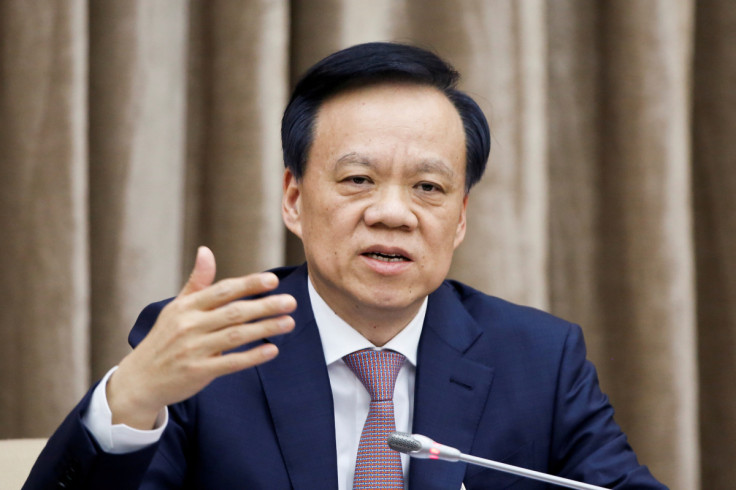Long Picked For Promotion, Xi Loyalist Chen May Get His Chance

Chen Miner, a close confidant of Chinese President Xi Jinping long seen as destined for a top leadership spot, is considered to be a strong contender for promotion during the upcoming congress of the ruling Communist Party.
Chen, party boss of the southwestern metropolis of Chongqing, is regarded as a steady technocrat and has often espoused Xi's ideologies and policies in public. He is seen to be a candidate to join the elite Politburo Standing Committee, which currently numbers seven members.
Chen, 62, was even considered a possible future successor to Xi heading into the previous party congress in 2017, but failed to win a big, double promotion from the Central Committee to the Politburo Standing Committee, as some analysts predicted.
Instead, with the 69-year-old Xi now expected to stay on for a precedent-breaking third term and possibly longer after he did away with presidential term limits in 2018, few party-watchers are counting on much clarity on a possible successor at the upcoming congress.
A native of Zhejiang province in eastern China, Chen spent close to three decades there before being promoted to deputy party secretary in Guizhou province in 2012.
In 2015, he was promoted to the top party position in Guizhou, focusing on poverty alleviation and developing what was one of China's most impoverished regions into a technology and big data hub.
In 2017, Chen was parachuted into the more politically challenging position of Chongqing party chief, a clean-up task after the sudden dismissal of Sun Zhengcai in a corruption scandal. Sun's predecessor in Chongqing, Bo Xilai, had also been toppled in a major political scandal.
While Chen has the provincial-level leadership credentials historically required for top party jobs, some observers note he lacks national experience and deeper expertise in economic and financial affairs.
Nevertheless, some who have worked with him have described him as a capable administrator able to deliver tangible results.
Chen was born in Zhuji city in eastern China and got his start as a propaganda clerk at a college in Shaoxing county. He is considered to be a member of Xi's so-called "Zhijiang New Army" clique forged during the future leader's years as party chief of Zhejiang province between 2002 and 2007.
Shanghai Party Secretary Li Qiang, another contender for promotion, was also in the group.
In Zhejiang, Chen worked as chief editor of the party's main local media organ, the Zhejiang Daily, rising to become propaganda chief for the province.
Known for his love of calligraphy and skill in writing, Chen reportedly helped Xi pen a weekly front page newspaper column during his time in Zhejiang, according to Hong Kong's Ming Pao newspaper, helping to burnish Xi's public image and winning his trust.
He was promoted to become deputy governor of the province during Xi's final year there.
"It's necessary to thoroughly implement the spirit of General Secretary Xi Jinping's important instructions on doing a good job in security and stability work," he said in a recent speech, according to the official Chongqing Daily.
© Copyright Thomson Reuters 2024. All rights reserved.





















